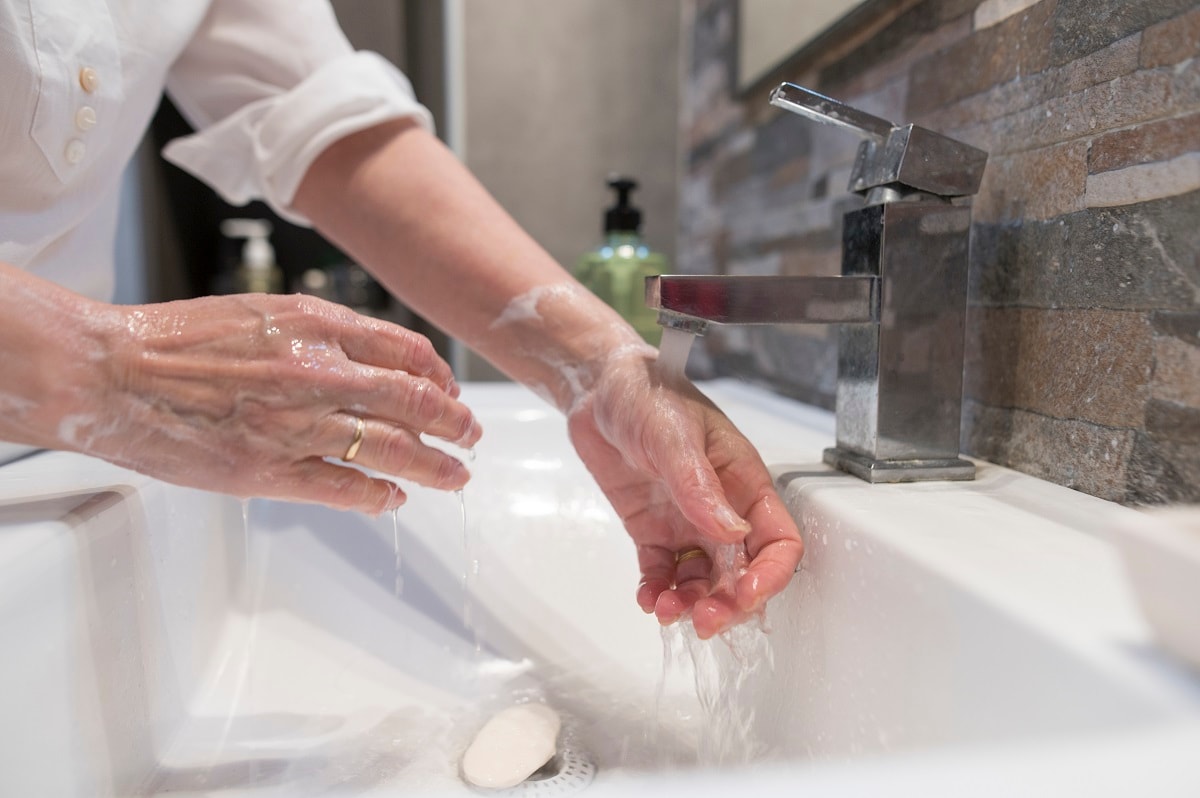Corona is hitting us hard. And people concerned for senior loved ones’ safety have good reason to be on high alert: As said by experts and the data coming out of China, people who are at higher risk for severe disease and death are those who are older and with underlying health conditions. According to early information from China, the median age of deaths is 75 years old.
Here’s what senior caregivers and relatives need to know about coronavirus.
>> Looking for a carer for your elderly relative? Find one in his area now.
Why are seniors more vulnerable?
Infectious diseases, such as COVID-19, generally pose a greater risk to older people for multiple reasons:
A less effective immune system
Typically, the body mounts an immune response to an invading bacteria or virus. This might not be a problem for young patients as their body fights it off, but it can be devastating for older loved ones because our immune systems gradually become both weaker and slower as we age. Due to those weaker immune systems seen in the elderly and other immunocompromised people they can’t mount a strong enough response to clear their lungs or catch up to neutralizing the virus.
Chronic conditions
The elderly are also most at risk, because as we age, we have a higher chance of suffering a chronic condition that debilitates the immune system. According to experts this includes diabetes, smoking addiction, chronic respiratory problems and cancer.
Living arrangements
The elderly community is also more likely to be in close contact with others who have infections, thanks to senior care living environments and frequent doctors’ appointments.
Certain prescriptions
A side effect of some prescriptions: hindering seniors’ immune systems. There are many medicines that elderly patients take that might lower their defence mechanisms and the most notorious ones are going to be steroids—anti-inflammatory medications and antirheumatic medications that people take for rheumatoid or severe arthritis, as well as medications that people take for cancer.
How seniors can reduce risk of coronavirus infection
While a vaccine is in development, at present, known medications are ineffective in preventing or treating COVID-19, which means that the best way to prevent the illness at this point is to avoid being in contact with it. But instead of completely quarantining yourself and loved ones out of fear, experts recommend that caregivers and the elderly take the following precautions to avoid the virus and stay healthy:
1. Lean into disinfectants
SARS-CoV-2 spreads when an infected person is within six feet of another individual and a viral droplet becomes airborne when he or she coughs or sneezes—or through contact with an infected surface. That said, senior caregivers should practice good hygiene.
The recommendation is to wash hands often with soap for at least 20 seconds, especially before eating and after using the restroom. If soap and water isn’t available, use a hand sanitizer that’s made of at least 60 percent alcohol.
2. Be aware of your surroundings & consider social distancing
If you or your senior loved one happens to be in the same space as someone with an infection, it’s important to monitor proximity to them. Experts are also advising affected communities to consider social distancing, which is defined as “remaining out of congregate settings, avoiding local public transportation, and maintaining distance of approximately six feet from others.”
3. Reconsider doctor’s appointments
If you’re the caregiver of a senior who has chronic conditions that could weaken their immune system, avoid visiting places that could increase the chances of coming into contact with an infected person. Especially in areas where cases of coronavirus have been identified, caregivers should keep in touch with the senior’s doctors and discuss postponing unnecessary visits.
4. Try nasal sprays
Experts highly encourage both caregivers and older loved ones to use over-the-counter saline nasal sprays with xylitol, which can help prevent bacteria from adhering to nasal passages, as a daily defence against the coronavirus. He recommends using multiple doses two to three times a day.
5. Support the immune system with hydration & nutrition
Because our sense of thirst diminishes with age, experts warn that dehydration is an often-overlooked health risk in the senior community. A general rule of thumb is to consume at least 2-2.5 litres of fluids per day, the more the better. You’ll also do well to emphasize the maintenance of healthy diet, high in antioxidant-rich fruits and vegetables, which is also critical for keeping defences up.
6. Maintain physical activity
Instead of quarantining elderly loved ones to their room or home, encourage them to remain physically active, ideally outside. This will promote good circulation and encourage the body to clear mucus from the airways, lowering the probability of viruses sticking to the lungs. There’s also a mental health benefit: If we all just become attached to the TV, waiting for something bad to happen, we are not participating in daily life, and psychologically, there is a great likelihood for older people to become depressed or anxious.
7. Stop or curb smoking
Smokers may not realize this habit can increase their chances for infection as smoking damages the lining of the lungs, which acts as the main defence when the virus first encounters the respiratory system.
8. Rethink wearing a mask
Masks are only truly effective for people who are already sick, as they help to decrease the spread of infection but do little to prevent a healthy person from catching it. What’s more, if you’re healthy, wearing a mask might elevate your risk of infection. Experts explain: If any virus gets into that little space, you’re going to have a direct inhalation process.
That said, the mask could be indicated for someone who is predisposed to respiratory illness and has to go to a doctor’s office or other locations where they’ll be in close proximity to individuals who are sick.
9. Don’t overlook the flu shot
Experts confirm that despite coronavirus fears, the flu is still the bug elderly patients have the greatest chance of coming into contact with. There is a vaccine that has potential for benefiting patients, so it should be a no-brainer to take advantage of that.
10. Be aware of “high-touch” surfaces
“High-touch” areas, which include handrails and touch screens in public places should be avoided whenever possible. Be aware of contact with these areas so that you can deliberately avoid touching your face after if you do make contact, e.g. use your key to touch elevator buttons instead of your fingers.
11. Curb panic with preparation
Panic usually creates more problems than solutions. Be prepared instead and look for information from trusted resources. Take a break from social media if it’s causing anxiety. Also remember, there are many types of microbes in our presence each and every day—common colds, flu, measles, which is sadly making a comeback, and whooping cough. So, maintain context and perspective as you educate yourself and others.
>> Looking for a carer for your elderly relative? Find one in his area now.

